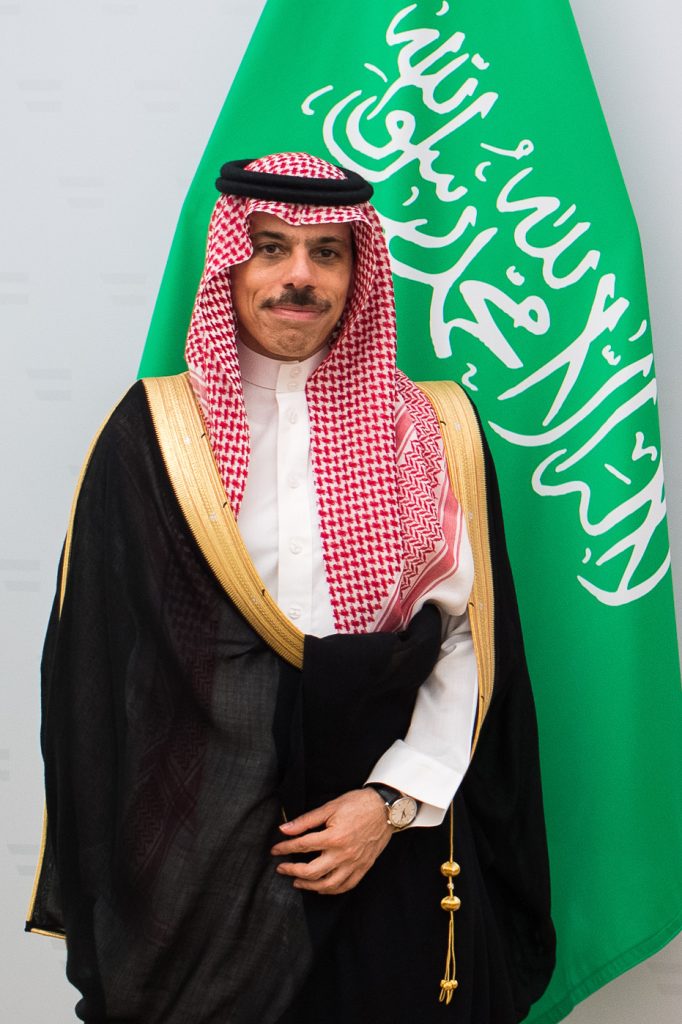Australia/Israel Review
Reading the Signs from Riyadh
Aug 28, 2023 | Haisam Hassanein

Is a Saudi-Israeli peace deal just around the corner or still just a long-term hope? The Wall Street Journal reported that Washington and Riyadh “have agreed on the broad contours of a deal” for the Saudis to recognise Israel. Yet when asked about that story, a State Department spokesman seemed to throw cold water on it, saying that normalisation has “a long road to go with an uncertain future.”
What may get lost among these duelling headlines is the degree to which Riyadh is laying the foundation for peace so that when a diplomatic breakthrough becomes possible, the new relationship has a foundation on which it can rest. Diplomatic statements, positive local media coverage, tolerance toward people-to-people interactions, and changes in textbooks are all preparing the Saudi public for a potential normalisation deal with the Jewish state.
Traditionally, Riyadh has adopted an unfriendly stance toward Israel due to its conflict with the Palestinians. Clerics in Friday sermons would lash out at Washington and Jerusalem over the plight of Palestinians. Conspiracy theories about Israel abounded. In 2011, Saudi newspapers claimed a vulture was caught inside the kingdom spying for Israel’s Mossad. A May 2022 report from the Institute for Monitoring Peace and Cultural Tolerance in School Education noted that while Saudi textbooks still erase Israel from the map and associate Zionism with threats to Muslim religious sites, since the signing of the Abraham Accords, entire chapters and several examples of Jew-hatred have been removed.
Over the past year, there have been numerous signs of open warming. Last Autumn, Riyadh hosted Dr. Samer Haj Yehia, chairman of Israel’s Bank Leumi, as a panellist at the Saudi investor forum, where Yehia described “amazing” opportunities in the desert kingdom. In a June press conference, Saudi Foreign Minister Faisal bin Farhan said that normalisation with Israel “would bring significant benefits” to the region. The Saudi Ambassador to the United States made a similar pronouncement at the Aspen Ideas Festival later in the month, declaring that her kingdom wants to see “a thriving Israel”. In July, Saudi Arabia signed an agreement with the United Nations Educational, Scientific and Cultural Organisation allowing member states, including Israel, to attend the World Heritage Committee’s meeting in September, which would mark the first official public Israeli presence in the kingdom.
In Saudi-affiliated media as well, Israel and normalisation are no longer taboo. When rockets from the Hamas-controlled Gaza Strip were launched at Israel in July, the London-based Saudi newspaper Al-Sharq al-Awsat avoided pejorative labels for Israeli troops such as “occupation forces”. The Saudi news network Al-Arabiya hosted Israelis to share their thoughts on issues unrelated to the Palestinians as well as Arab commentators who shared favourable views of Gulf normalisation with Jerusalem while demanding that the Palestinians give peace a chance. In August, the Jeddah-based daily newspaper Okaz published an article by a Syrian writer urging Palestinians to conclude peace with the Jewish state under the auspices of Saudi Crown Prince Mohammed Bin Salman.
People-to-people interactions have also been on the rise. An Israeli national team participated in FIFAe World Cup in Saudi Arabia, where Israel’s national anthem was played.
Saudi activists and professionals openly attended cultural normalisation events and discussed with Israeli citizens potential peace deals between their respective governments in the United Arab Emirates and the United States without facing any backlash from the Saudi security apparatus back home. Saudi authorities also chose Muslim World League head Sheikh Mohammad al-Issa, who is known for his friendly gestures toward Jews, to give the prestigious Arafat sermon at the 2022 Hajj.
This openness stands in stark contrast to popular attitudes among Israel’s longtime Arab peace partners, Egypt and Jordan. Just last month, a hotel in Egypt reportedly kicked out an Israeli model after discovering her nationality. Meanwhile, Israeli and Jewish tourists have complained of antisemitic abuse when entering the Hashemite Kingdom.
Saudi-Israeli normalisation has also hit some bumps along the road. The Saudi Foreign Ministry recently condemned Israeli Minister of National Security Itamar Ben-Gvir for visiting the Temple Mount. And last March, Israeli Foreign Minister Eli Cohen could not participate in a conference of the United Nations World Tourism Organisations in Riyadh due to Saudi authorities delaying issuing visas.
But the overall trend is running strongly in favour of normalisation. The kingdom has been paving the road to prepare its population for such a historical moment so that when peace comes, it will hopefully be a warm one.
Haisam Hassanein is an adjunct fellow at the Foundation for Defense of Democracies (FDD), where he analyses Israel’s relations with Arab and Muslim countries. The article was originally published in the Washington Examiner (www.washingtonexaminer.com). ©FDD (www.fdd.org), reprinted by permission, all rights reserved.
Tags: Israel, Saudi Arabia






